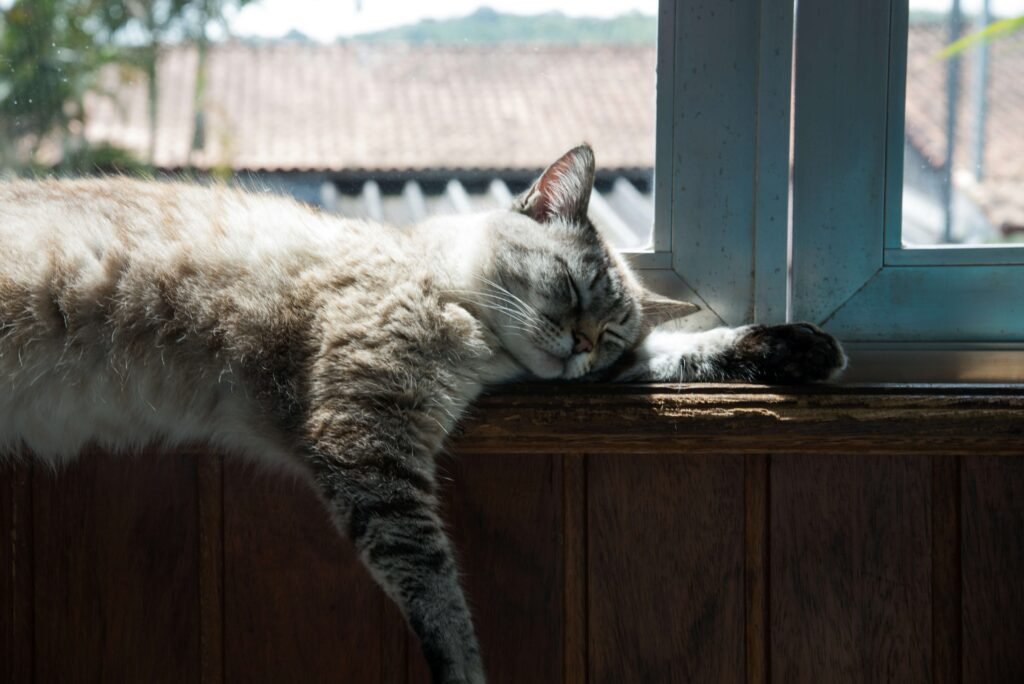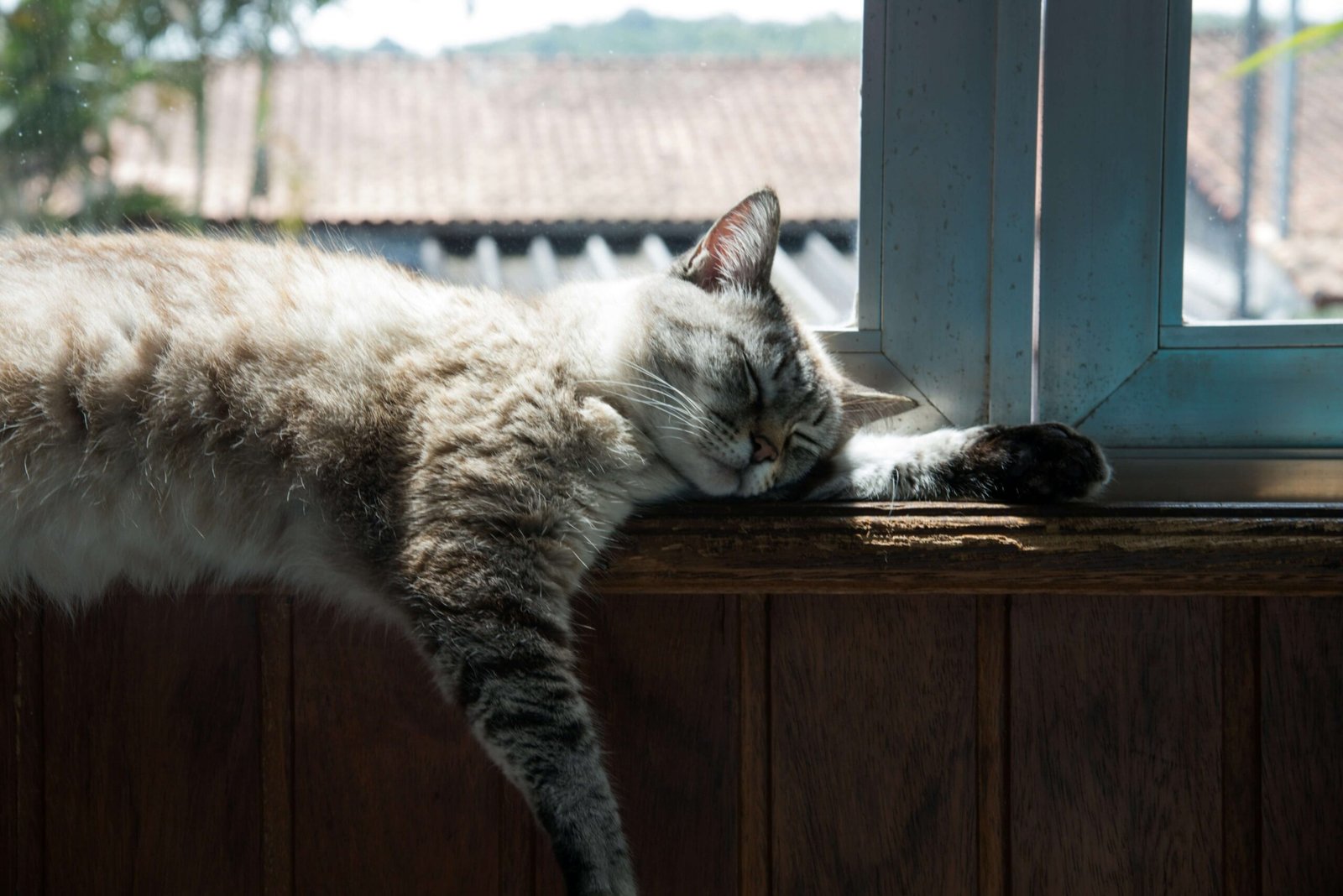How Long Does a Cat Hold a Grudge? Decoding Feline Emotions
Cats are mysterious creatures, often leaving their human companions wondering about the depth of their emotions. One common question that arises is whether cats can hold grudges and, if so, how long these grudges might last. While cats may not experience emotions in the same way humans do, they certainly have their own unique ways of processing interactions and experiences. Understanding feline behavior can help us better care for our furry friends and strengthen the bond we share with them. So, let’s dive into the fascinating world of cats and explore what science and observation tell us about their emotional memory.
Signs That Your Cat May Be Holding a Grudge
While cats don’t hold grudges in the human sense, they can exhibit behaviors that suggest they remember negative experiences. Here are some signs to look out for:
Avoidance Behavior :
If your cat suddenly starts avoiding you or certain areas of the house, it could be a sign that something has upset them.Hissing or Growling :
These vocalizations are clear indicators that your cat feels threatened or uncomfortable.Tail Flicking :
A rapidly flicking tail often signals irritation or displeasure.Refusal to Engage :
Cats may ignore your attempts to play or cuddle if they’re upset with you.Changes in Eating Habits :
Stress or discomfort can lead to a temporary loss of appetite.
If you notice any of these behaviors, it’s worth reflecting on recent interactions to see if there’s a possible trigger. Remember, cats are sensitive beings, and even small changes can affect their mood.
Factors That Influence a Cat’s Memory and Emotional Response
Several factors can influence how long a cat might “hold onto” a negative experience. Understanding these elements can help you better interpret your cat’s behavior:
The Severity of the Event :
More intense experiences, such as loud noises or physical discomfort, are more likely to leave a lasting impression.Frequency of the Trigger :
Repeated exposure to a stressful situation can reinforce negative associations.Individual Personality :
Just like humans, each cat has a unique temperament that affects how they process emotions.Age and Health :
Older cats or those with health issues may be more sensitive to stress and take longer to recover emotionally.Environment :
A stable and enriched environment can help cats feel secure and reduce the likelihood of prolonged grudges.
By considering these factors, you can gain insight into why your cat might be acting a certain way and take steps to address their needs.
Check this guide 👉Why Does My Cat Twitch in Their Sleep? Best 7 Behavior Tips!
Check this guide 👉Why Is My Cat Suddenly Clingy? Best 7 Behavior Tips!
Check this guide 👉Why Does My Cat Not Like to Be Held? Best 7 Behavior Tips!

Behavioral Signs of Upset Cats | Ways to Help Your Cat Feel Better |
|---|---|
Avoidance of people or spaces | Create a calm and quiet environment |
Hissing or growling | Give your cat space and time to relax |
Tail flicking | Offer treats or favorite toys |
Refusal to engage | Speak softly and avoid sudden moves |
Changes in eating habits | Consult a vet if stress persists |
How to Repair Your Relationship With Your Cat
If you suspect your cat is upset with you, there are several steps you can take to mend the relationship. Patience and consistency are key:
Apologize in Cat Language :
Use slow blinks and soft tones to communicate affection and reassurance.Offer Treats or Food :
Positive reinforcement can help rebuild trust over time.Engage in Play :
Interactive play sessions can distract your cat from negative feelings.Provide Comfort Items :
Familiar blankets or toys can offer a sense of security.Give Them Space :
Sometimes, simply allowing your cat to retreat and process their emotions is the best approach.
Remember, repairing a strained bond takes time, but with effort, most cats will eventually forgive and move on.
Common Misconceptions About Cats and Grudges
There are many myths surrounding cats and their ability to hold grudges. Let’s clarify some of these misconceptions:
Cats Don’t Hold Grudges Like Humans Do :
Their behavior is driven by instinct and memory rather than complex emotions.Negative Behaviors Aren’t Always About Grudges :
Cats may act out due to illness or environmental changes unrelated to past events.Punishment Doesn’t Work :
Scolding or punishing a cat often worsens the situation instead of resolving it.Cats Can Forgive Quickly :
With the right approach, most cats will bounce back from negative experiences.Every Cat Is Different :
Generalizations about feline behavior don’t apply to every individual cat.
Understanding these truths can help you approach your cat’s behavior with greater empathy and patience.
Understanding Feline Memory: Key Insights
Cats have a unique way of processing memories, which plays a significant role in their behavior. While their memory isn’t identical to human memory, it’s still complex and fascinating. Here are some key insights into how cats remember experiences:
Short-Term vs. Long-Term Memory :
Cats can retain short-term memories for a few minutes, but strong emotions or repeated events may transition into long-term memory.Association-Based Memory :
Cats often remember things through associations, such as linking a specific sound with food or playtime.Emotional Impact on Memory :
Events that trigger strong emotions, whether positive or negative, are more likely to be remembered vividly.Selective Memory Retention :
Cats tend to focus on memories that are relevant to their survival or well-being.Age-Related Memory Changes :
Older cats may experience memory decline, similar to humans, affecting their ability to recall certain events.
Understanding these aspects of feline memory can help you better interpret your cat’s actions and provide the care they need.
How Cats Communicate Their Feelings
Cats are masters of non-verbal communication, using body language and subtle cues to express their emotions. Recognizing these signals can help you understand whether your cat is upset or content. Here’s what to look for:
Ear Position :
Forward-facing ears indicate curiosity, while flattened ears signal fear or aggression.Purring Doesn’t Always Mean Happiness :
Cats sometimes purr to self-soothe during stressful situations.Eye Contact and Blinking :
Slow blinks are a sign of trust, while prolonged stares can indicate discomfort.Body Posture :
A relaxed, curled-up position suggests comfort, while an arched back may mean your cat feels threatened.Vocalizations Beyond Meowing :
Chirps, trills, and yowls each convey different messages depending on the context.
By paying attention to these cues, you can deepen your understanding of your cat’s emotional state and respond appropriately.
Tips for Strengthening Your Bond With Your Cat
Building a strong bond with your cat requires time, patience, and effort. By incorporating small gestures into your daily routine, you can create a lasting connection. Here are some practical tips to strengthen your relationship:
Spend Quality Time Together :
Dedicate a few minutes each day to play, groom, or simply sit with your cat.Respect Their Boundaries :
Allow your cat to approach you on their terms, rather than forcing interaction.Use Positive Reinforcement :
Reward good behavior with treats, praise, or affection to encourage trust.Maintain a Consistent Routine :
Cats thrive on predictability, so stick to regular feeding and play schedules.Create a Safe Space :
Provide areas where your cat can retreat when they feel overwhelmed or need solitude.
By implementing these strategies, you’ll not only strengthen your bond but also ensure your cat feels secure and loved in their environment.
FAQ
Can cats really hold grudges?
Cats don’t hold grudges in the human sense, but they can remember negative experiences and react accordingly.
How long does it take for a cat to forgive?
The timeline varies depending on the cat and the situation, but most cats will recover within a few hours to a few days.
What should I do if my cat seems upset with me?
Offer treats, give them space, and engage in calming activities like gentle play or petting.
Can punishment make my cat hold a grudge?
Yes, punishment can create fear or resentment, making the situation worse. Positive reinforcement is always better.
Do older cats hold grudges longer than younger ones?
Not necessarily, but older cats may take longer to recover from stress due to age-related changes.
Building a Stronger Bond With Your Cat
Understanding how cats process emotions and memories is crucial for fostering a healthy relationship with your feline companion. While they may not hold grudges in the traditional sense, their reactions to negative experiences highlight the importance of patience, empathy, and consistent care. By creating a loving and supportive environment, you can ensure your cat feels safe and cherished. After all, the bond between humans and cats is built on mutual trust and respect—a foundation worth nurturing every day.
Dog Tapeworm Life Cycle: Best 7 Expert Tips! – Learn how tapeworms infect dogs, spot symptoms, and break the cycle with expert prevention strategies.
Anxious Cat Body Language: Best 7 Expert Tips! – Learn to spot signs of stress, understand triggers, and help your cat feel safe and relaxed.
Anxious Dog Body Language: Best 7 Expert Tips! – Learn to spot signs of anxiety, respond effectively, and help your dog feel safe and secure.
Is Breeding Dogs Bad? Best 7 Expert Tips! – Explore the ethics, benefits, and risks of dog breeding to make informed decisions for a better future.





